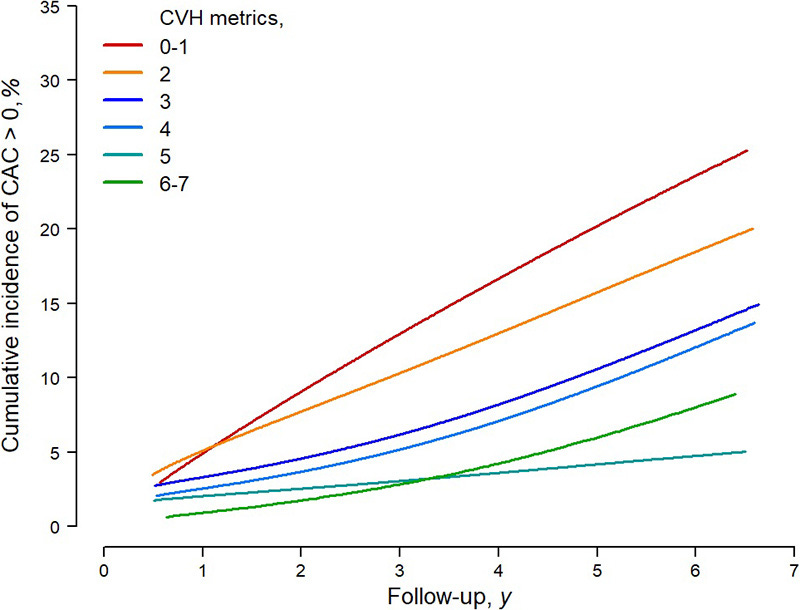8 Golden Rules Of Cardiovascular Health

The biology of cardiovascular disease and atherosclerosis is complex.
The solution to drastically reducing your risk from it, however, is not.
It’s actually very simple.
General health advice is something we hear almost every day. It fades into the background we hear it so often.
We are frequently drawn to some ‘breakthrough treatment’ for heart disease, like CRISPR gene editing or new drug therapies.
While some of these newer treatments will revolutionise cardiovascular care in the future, it is the attention to the fundamentals that will have the biggest impact on most people as of today.
If you can adhere to 7 simple steps (The 8th comes later), your risk of dying from heart disease is reduced by 75%1.
I want to emphasise how big of a deal this is.
There is practically nothing in medicine that can achieve that kind of effect. Not to sound like an infamous ex-president, but this is ‘huge’.
So what are these 7 steps?
-
Not Smoking
-
Being physically active
-
Having Normal Blood pressure
-
Having Normal Blood Glucose
-
Having Normal Total Cholesterol
-
Maintaining Normal Weight
-
Eating a healthy diet
I said they were simple. Not easy.
Let’s see what happens when you get most of these right and how that influences your risk of dying from ANY cause and or dying from heart disease.

Compared to those who maintained only 1 of the above healthy factors, those who were able to maintain at least 6 of these healthy factors were:
-
51% Less Likely to die from ANY Cause - All-Cause Mortality
-
76% Less likely to die from heart disease - Cardiovascular Disease Mortality2.
These seven factors account for 64% of the risk for cardiovascular death. Amazingly, high blood pressure alone accounted for almost half of that 64%. Although other factors are at play, these seven factors account for most of the risk.
But if you get these seven right, you are well on your way to making a considerable dent in your cardiovascular risk.
No fancy tests.
No expensive scans.
Just simple health metrics absolutely anyone can track.
Simple. Not easy. But simple.
These seven health metrics are the American Heart Association Life’s Simple 7.

-
Get four right, and you reduce your risk of diabetes by 75%.
-
Get five right, and you cut your risk of heart disease by 50%.
-
Get six right, and you reduce your risk of cancer by 51%3.
I just know there are some of you reading this thinking:
“Yeah, yeah, yeah. I know all that. Tell me about the fancy stuff I hear about on all the podcasts”.
This IS the fancy stuff.
These are the factors that make the biggest difference.
So let’s see how well we are doing with the basics.
In 2022, the American Heart Association added another health metric, sleep. Poor sleep is increasingly recognised as a cardiovascular risk marker4. So as of today, we have the American Heart Association Life Essential 8 (LE8).
In general, younger people tend to have better health than older people, so let’s see how adults aged 18 to 44 fare on these ‘Basics’.
The Life Essential 8 test is graded out of 100. With a score of greater than 80 indicating ‘Ideal’ cardiovascular health, 50 - 79 indicating ‘Intermediate’ and less than 50 indicating ‘Poor’.
The median age of this population was 30 years of age—so very young adults who should all be doing exceptionally well.
Only 1 in 4 scored in the ‘Ideal' Cardiovascular Health category.
62% scored in the ‘Intermediate’ category.
11% scored in the ‘Poor’ category5.
This is very bad news.
These are not adults aged 75 years and older. These are 30-year-old males and females.
These people should be, on average, living to 80 years of age. But for those not in the ideal category, the probability of that happening is significantly less.
Let’s look at how not adhering to these metrics influences the risk of developing cardiovascular disease earlier in life.
We know that the earlier you develop significant cardiovascular disease, the higher your risk of having an event like a heart attack earlier in life.
For those with low adherence to the ideal health metrics, the likelihood of having documented advanced atherosclerosis increased even over a six-year time period6.

Cardiovascular disease is complex, but focusing on the simple things is key.
Achieving them may be challenging, and many factors influence these factors, but the evidence is clear.
If you can hit the following eight metrics, your risk of developing cardiovascular disease prematurely or dying from cardiovascular disease prematurely is massively reduced.
-
Not Smoking
-
Being physically active
-
Having Normal Blood pressure
-
Having Normal Blood Glucose
-
Having Normal Total Cholesterol
-
Maintaining Normal Weight
-
Eating a healthy diet
-
Adequate Sleep
Are you hitting all of these metrics?
If not, it’s time to get to work.
Your life depends on it.
Trends in Cardiovascular Health Metrics and Associations With All-Cause and CVD Mortality Among US Adults. JAMA. 2012;307(12):1273–1283.
Trends in Cardiovascular Health Metrics and Associations With All-Cause and CVD Mortality Among US Adults. JAMA. 2012;307(12):1273–1283.
Ideal cardiovascular health is inversely associated with incident cancer: the Atherosclerosis Risk In Communities study. Circulation. 2013 Mar 26;127(12):1270-5.
Association of Sleep Duration with the Morbidity and Mortality of Coronary Artery Disease: A Meta-analysis of Prospective Studies. Heart Lung Circ. 2015 Dec;24(12):1180-90.
AHA Life's essential eight and ideal cardiovascular health among young adults. Am J Prev Cardiol. 2022 Dec 23;13:100452.
Life's Simple 7 Cardiovascular Health Metrics and Progression of Coronary Artery Calcium in a Low-Risk Population. Arterioscler Thromb Vasc Biol. 2019 Apr;39(4):826-833.




